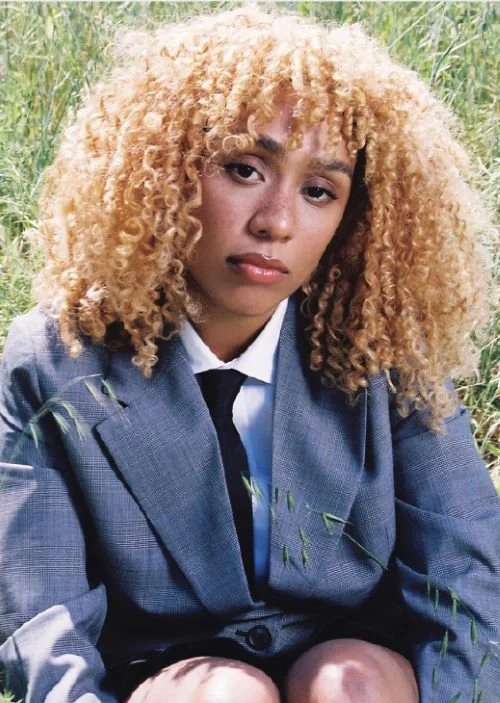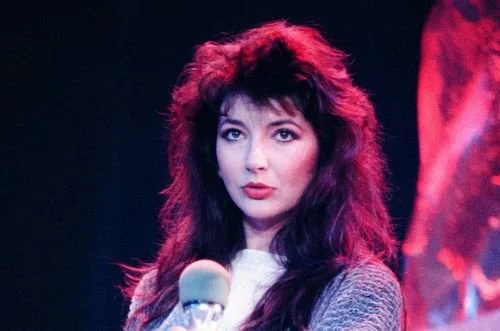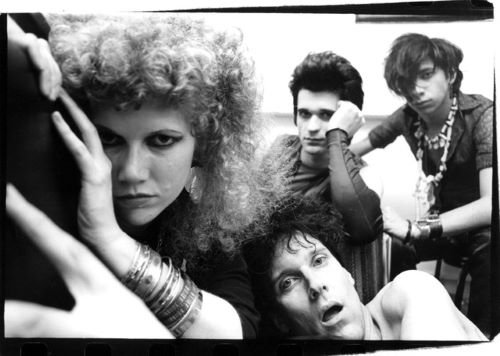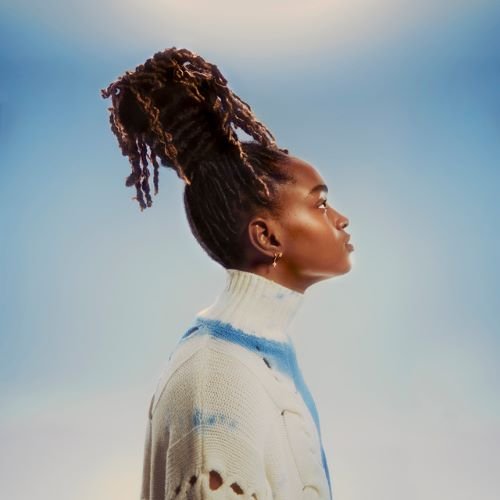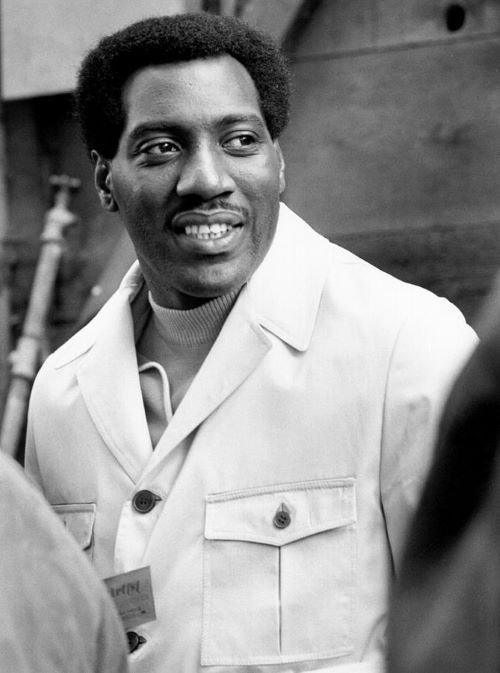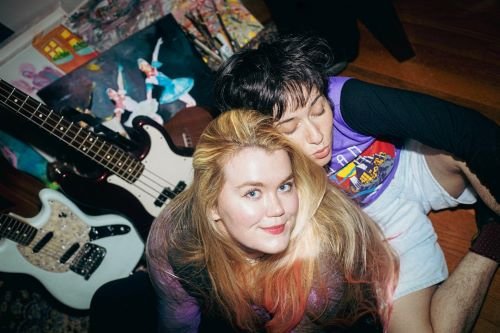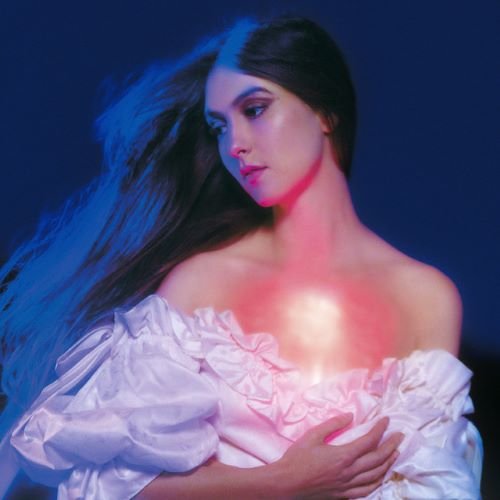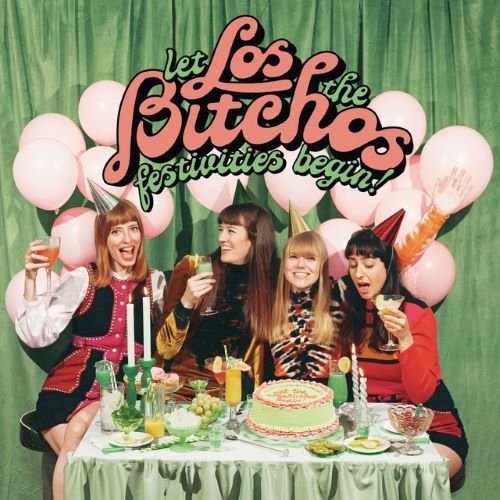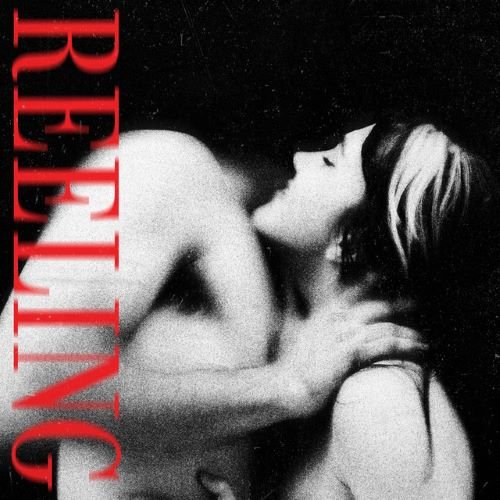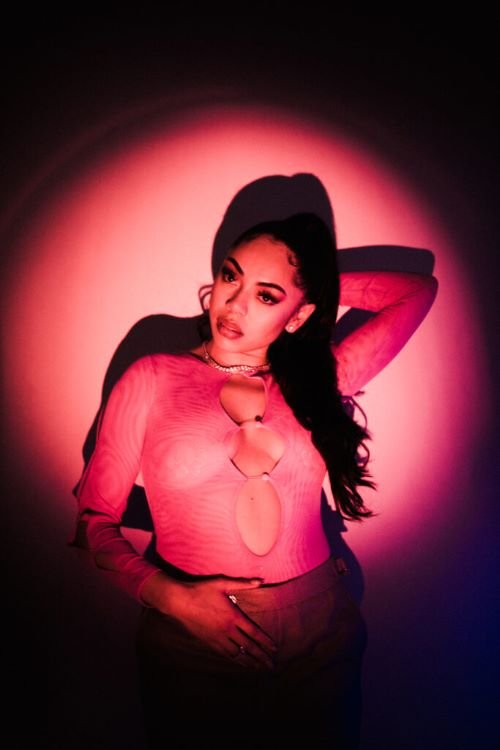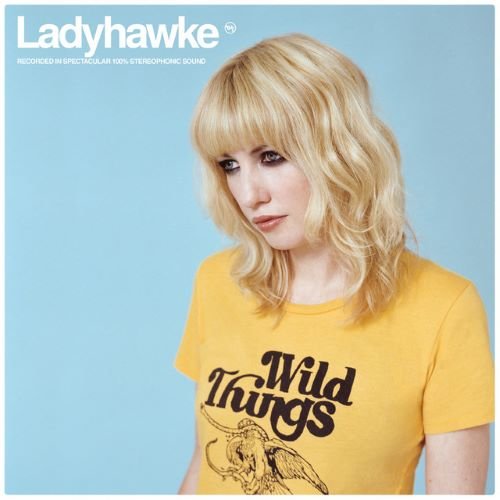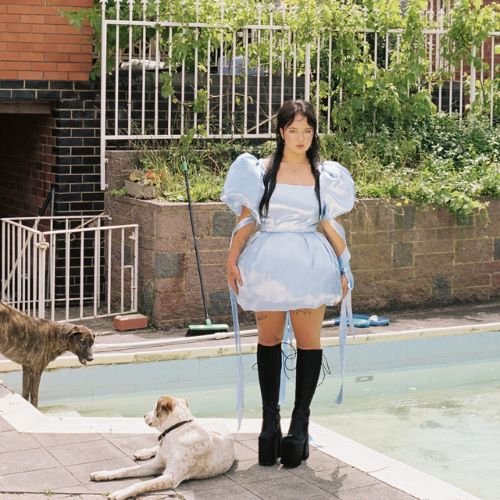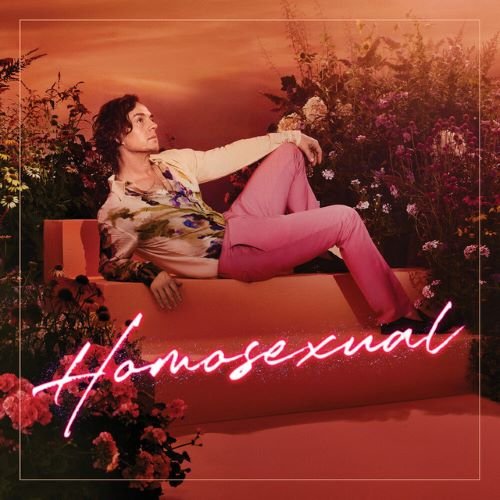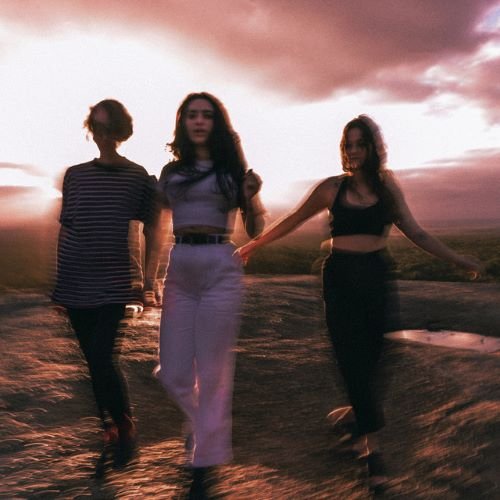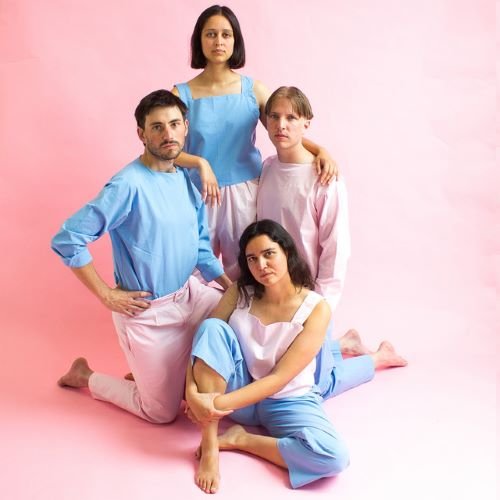FEATURE:
Spotlight
Fousheé
__________
MAKING a late bid…
for album of the year, softCORE is an extraordinary release from Fousheé. Breaking through this year, I must admit I am a little new to her brilliance. Making her debut and big first impression during the pandemic and lockdown, I think this year has been the first where she has been able to have the freedom and space to make music and promote it. Real name Britanny Fousheé, here is a magnificent and hugely innovative singer-songwriter and guitarist from New Jersey. I am going to end this feature with a review for softCORE, as it is a mesmeric and stunning album/project. Before that, there are a few interviews I want to draw in. Apologies for bouncing around regarding time period and narrative flow, but I want to start with a recent interview from NME. A sensation and artist that is gaining traction in the U.K., everyone needs to tune their radar the way of the magnificent Fousheé. She released the time machine album last year and, it seems, has made strides in such a short time:
“In the near-18 months since ‘Time Machine’ was released, Fousheé has been angry. Her new project ‘Softcore’ is bristling with a heavier sound: while it retains some of the soft acoustic moments and touching openness found in ‘Time Machine’, it’s much more influenced by post-punk, metal and hardcore than any of her previous work. It’s a record that treads the line between pure unbridled and terrifying anger and the raw, painful hurt it stems from, like poking a bruise so much that it spreads. “This record is about my anger towards men,” Fousheé tells NME with a laugh from her LA home. “In relationships and in the [music] industry. I would find myself mad at this role I have to play as a woman, and I raged about it.”
‘Softcore’ is expansive, and flips perceived power dynamics on their head. “When it comes to music, people assume that I would make a different type of record — not one where I’m being as aggressive or vulgar,” she says. “Just make pretty music and appear really pretty — it reminds me of Snow White, but I don’t feel like a little Disney princess. I felt like I wanted to reap the benefits that men get to reap by making the music that they make.”
On ‘Die’, Fousheé cusses out an imaginary male other, screaming enticingly about her groupies and drugs and daring him to go faster. On ‘Bored’, she is enticingly sardonic, drawling: “I’m bored / Wanna be my boyfriend?” She tells “everybody [to] suck my dick” on ‘Stupid Bitch’, convincingly claiming masculinity as a state of mind. Though angry, it’s still fun, inviting Fousheé’s audience to let everything out with light-hearted catharsis — or, as she puts it, “we don’t have to choose, both can exist in one place”.
This is the first time that Fousheé has seen any of her fans in real life, as her viral moment happened during lockdown. She says the effects of that have felt “like insanity”, with everything happening so fast that she hasn’t yet had the time to take it all in. It’s the culmination, though, of years of hard work that has always prized music and creativity above all else: “I didn’t create a back-up plan, and I’m like, ‘Damn, what else am I gonna do?’ There’s nothing. The main thing is making music and creating things that I love, and I commit to that.”
That commitment has opened numerous doors for Fousheé, who has collaborated in recent times with the likes of King Princess, Lil Wayne and Lil Uzi Vert. But what shines through in all of her solo and collaborative work is her integrity and core belief in her art. This lack of a back-up plan has worked for her so far — she’s been able to create her path from nothing and make it fully her own. ‘Softcore’ may be a departure from her previous work, but Fousheé’s instincts are clearly worth trusting”.
I am going to wind back to 2021. EUPHORIA. spoke with, as they described, “New Jersey-bred songstress and Apple Music’s Up Next Artist Fousheé”. It was an exciting year for an artist that was coming through with the most incredible sound. Even though I only discovered Fousheé this year, I have been listening back to her previous work and am blown away by it. She is someone who is going to have a truly massive career without a doubt:
“Fousheé, for the entirety of her life, has been a sonic sponge. Along with Billie Holiday tonalities, she picked up her rhythmic sensibility from her mother who was a drummer for a reggae band during her youth. “She had a big influence on my love for music,” Fousheé expresses about her. “She was a drummer and she always played Bob Marley. I think I unintentionally followed that blueprint because Bob was a singer-songwriter-guitarist who spoke up about what was going on in the world.”
Fousheé also soaked up her mother’s passion and drive. “She used to tell us we can’t say, ‘I can’t,’” Fousheé says. “She was a single mom and she worked as an immigrant in this country to put us in a good neighborhood. If she can do that on her own, I can stand on my own too.”
Jump ahead 15 to 20 years and this woman with her guitar is singing all over New York City trying to craft a career in music. “Alternative rock was a big inspiration for me at that time,” Fousheé says. “It made me want to include more electric guitars in my music. It made me drawn to certain chord combinations.”
Thus, with jazz, singer-songwriter, reggae, and alt-rock all in her arsenal, Fousheé just needed to craft the perfect tone in her voice that would organically connect all of her influences. “I had to develop a sense of my voice because people wanted me to sound a certain way, or I used to be frustrated that I couldn’t sound like certain singers. But that ended up being an advantage,” Fousheé recalls about this crucial stage in her development. “I used to try to sound like Beyoncé or try to belt, but I was shy, so I would practice quietly, and I ended up with a very strong falsetto voice. I realized I could play with those textures and try to create my own sound.” Though she was still developing, this discovery would prove to act as a sort of glue for her artistry overall.
During this period, Fousheé not only drew more musical inspiration but also garnered a thick skin attached to her unwillingness to fail. She performed at a plethora of live music venues in The Village to new crowds each evening as the area drew everyone from locals to tourists to industry people. “It was interesting because you could sing the same song (repeatedly), but every night is unique,” she explains. “You have to go in and win people over. It was tough, but helped a lot with how I perform now.”
One of the toughest gigs she ever had, though, was at Harlem’s legendary venue The Apollo Theater. The success of that show would fuel her self-confidence in an everlasting way. “Some people come to The Apollo just to boo,” Fousheé proclaims. “The day I went, two people got booed in front of me so I was very nervous. New York is the toughest crowd you can find. If you can perform and impress a crowd in New York, you can do it anywhere.”
As for many artists, though, talent, sense of a musical self, and relentless pursuit alone were not enough. Fousheé’s life flipped when a sample hook she’d made for the website Splice was used in a beat for a track by Brooklyn drill rapper Sleepy Hallow. The song “Deep End Freestyle” went viral on TikTok and sent fans on a search for the mystery vocalist on the ruminating loop in the instrumental. Eventually, this made its way to Fousheé, who was met with a bit of a conundrum. The samples one submits and sells on Splice, according to Fousheé, are known as “royalty-free sample packs.” This means if someone purchases the sound they don’t need to credit the artist who sold them the sample.
“So going about getting credit is not only rare, but it usually ends up as a lost cause,” Fousheé explains. “I felt like my scenario was different because it wasn’t a discreet addition to the song. People were gravitating towards the voice and seeking the person singing but didn’t know where to find me.” Fousheé mustered up her now-learned success drive (with still a little extra push from her mother) and made a TikTok video discussing it and coming forward as the singer. “I was hoping that [Sleepy Hallow] would hear me out, but I ended up just doing it on my own terms,” she says. Then once her TikTok video also went viral, she ended up with credit as well as high demand for her own full version of the song. “I was surprised that a lot of people cared so much,” Fousheé says. “A lot of people were just happy to have found the singer and were surprised it wasn’t some old ancient sample. It was the perfect storm of events to build suspense. That’s what made people excited to hear my version.”
It was crunch time. She’d gone from 5-year-old Fousheé singing about a bathroom line with only her family as the audience, to now having a huge chunk of the digital sphere waiting for her to deliver. She had to craft verses that matched the impact her hook loop had created. “I felt like people were gonna expect something similar. But I wanted to do that while still staying true to myself,” Fousheé explains. “So I knew it had to be a mix of both. It was a lot of pressure ‘cause the song that ended up going viral from the sample was a lot different from my music. But I like Brooklyn drill and I knew it had to have a little of that in there.”
Yet again, Fousheé was a sponge to sonic influence, but this time she adopted the sounds that propelled her into the spotlight. She also had the self-awareness to realize that if she brought along the rest of the tones she’d already grasped, it could really elevate the song. “I brought my original self to it with the guitar,” she says. “I think that gave it a more alt singer-songwriter feel. Then the drums made it more hip-hop, uptempo, and something you could dance to. That’s what the music is anyway, blending things you wouldn’t normally mix. I think that was a big appeal to the record.”
The finishing touch was bringing not just the plethora of sounds she’d garnered, but the Bob Marley-like sentiment she learned from her mom early on. She opens the track with the lyrics, “I been trying not to go off the deep end / I don’t think you wanna give me a reason / Had to come and flip the script / Had a big bone to pick / Got the short end of sticks, so we made a fire with it.”
“I wanted it to reflect what was going on in the world. It was a heavy time,” Fousheé explains. “But I didn’t want people to feel sad when they listened. I wanted them to feel empowered. I wanted it to be like an anthem. It was a lot of pressure. I was walking around my house in circles. I wrote like seven different versions. I was living with a roommate at the time and she was hearing me creating throughout the week, and this particular version stuck in her head and she was singing it back to me. That’s when I knew this might be the one.”
“Deep End” was in fact “the one,” and it propelled Fousheé to this moment prepping for her first project’s release atop an Apple Music-certified stage. The track has amassed over 100 million worldwide streams to date. The song’s success also cemented the reach of her musical mentality. “I would’ve never released a song like ‘Deep End’ (before). It made me more open to trying different sound mixtures and playing with textures,” she explains. “When I made it, I was scared that people wouldn’t get to hear me as who I felt I was as an artist and just hear a specific version of me. But I think it made me realize I’m still gonna be in the song regardless of the genre. There’s still ways to bring me to it.”
Adding this final hip-hop element blossomed into a whole new world of possibilities, one being multiple collaborations with rap legend Lil Wayne. On her track with him “Gold Fronts,” Fousheé sings over minimal guitar about how shimmering teeth jewelry is a symbol for putting expression and culture on display unapologetically. Wayne fused with her in a way we haven’t heard him. Over just acoustic plucks and other sparse sounds, he smoothly ties his perspective to her concept. On “Deep End,” Fousheé brought her world to hip-hop, then with “Gold Fronts” brought hip-hop to her world.
That collaboration worked so well Wayne even had Fousheé feature on his ultra-personal track “Ain’t Got Time.” The song is about the stress and anxiety surrounding Wayne as he awaited a potential prison sentence he’d eventually be pardoned from. “I was anxious, so I can’t imagine how he must’ve felt,” Fousheé says about the experience. “It was a mix of emotions ‘cause I was concerned about him, but when I’d speak to him, he’d act like he had no cares in the world. It was a cool song ‘cause I think he addressed what he needed to address. I was just glad to be a part of his moment.”
On her second single for her debut, Time Machine, Fousheé uses a classic “Weezy-ism” in its title “my slime.” She builds off those two words to make a rhyme pattern that tells a unique story in the video she is about to premiere after our conversation. “In the lyrics, I say “You’re my slime, my partner in crime,” so it’s a literal take on that and we rob a bank,” Fousheé says about the story depicted. “I wanted to make it the cutest, most adorable robbery. The balance of really cute versus very dangerous. Skipping with a 21 (Magnum Rifle) and my cute little teddy bear bookbag. It’s a balance of so many things and a love story.”
Balance is a theme and intention Fousheé uses consistently throughout this track and the rest of Time Machine. “I wanted to take a classic love-feeling indie song and add the contrast of lyrics you wouldn’t normally hear,” she says about finding sonic equilibrium. “On this project, it’s all about mixing. Hearing that term in my daily life and bringing it to a place you wouldn’t normally hear it”.
A huge musical force who caught a lot of love and praise this year, I want to come to an interview from April. Alternative Press explore how she was uncredited for her part on Sleepy Hollow’s Deep End Freestyle. She released a song called deep end, which addressed the issue:
“Fousheé has been writing music since childhood, but her path to stardom has been unexpected. After appearing on The Voice in 2018, she made 250 song samples for the online music platform Splice, which allows musicians to purchase and use samples royalty-free. One of Fousheé’s samples was used in Sleepy Hallow’s “Deep End Freestyle,” which went viral on TikTok. But Fousheé’s part was uncredited, and the mystery of who sang that hook remained. Fousheé’s family encouraged her to come forward, so she did, in a TikTok that now has 2 million likes. Fans asked her to make a full song, which Fousheé created and released, called “deep end.”
“Without that push, I don’t think I would have done any of those things,” she says now. “But why? I think I deserved credit for the song. The song deserved to be connected with people and to get out there. Wanting more for yourself and not settling and the importance of it was the lesson that I learned.”
In a rewarding twist, “deep end” reached the top 10 on alternative radio — making it the first song by a Black woman in over 30 years to do so, since Tracy Chapman’s “Crossroads.” “When I found out it had been 32 years, it just felt long overdue,” she says. “I was a little confused because as a music lover, there’re a lot of Black artists that I listen to. It just made me question why it hadn’t hit on a mainstream level yet.”
And Fousheé’s planning on going even further into the alternative side of her sound on her as-yet-unannounced upcoming project, which takes a lot of influence from punk. The first song, “double standard,” which came out April 8, has a deceptively summer-y feel that contrasts its sharper lyrics: “Boys don’t play by the same rules that the girls do.” It’s just a taste of what she has brewing, especially when it comes to the themes of the project.
PHOTO CREDIT: Alondra Buccio
Your music doesn’t fit into any one genre — it takes from all these different types of music. How did you develop that style?
I think it’s a reflection of my taste. I get really bored very easily, so the music that I listen to is all over the place and a reflection of my personality. If I’ve been writing a lot of sappy love songs, eventually I’ll feel this urge to revolt and then write something polar opposite to that. I love variety. It keeps me entertained.
You write your own songs, and you direct your own music videos. Why is it so important to you to have that level of ownership and control over your work?
When I write, I’m a very visual person. That’s the most exciting part of it for me because in school, I was not that lit kid who could write a thousand-page paper. I’m very not wordy. I hated reading. But I love to imagine things. So when I write a song, I usually already have a visual idea. I feel a little uncomfortable unless I’m able to fully express that vision, from writing the song to making the visual. It goes hand in hand for me. Especially since I wrote it, I know what I wrote it about, I know how I felt and I know how I want the visual to feel. I don’t think anyone else has that relationship with the song besides the songwriter. So it’s an equally important form of expression and just as equally important as writing the song for me.
Did you find that because you already have such a broad spectrum of musical influences, it was easy for you to navigate that? Your upcoming song “i’m fine” is a little different from your other music in that the other songs had a drumbeat from one genre, or a guitar that sounds like another genre, whereas this one starts out as indie rock and then all of a sudden, it switches to heavy music, and then it goes back to indie rock.
No, it wasn’t hard at all, surprisingly. It was exciting for me knowing that I’d never heard a song like that. I feel like part of my job as an artist is to create things that haven’t been created before. So it was a really, really cool moment, finding that niche and realizing that these two things can work together as one. It’s experimenting. That could have easily been a terrible song. Or maybe some people will view it as terrible, but it makes you uneasy, it makes you listen, it makes you think. And that’s really why I do it. So it wasn’t hard at all. I love both of those genres. So why not put it in one? I’m such a fan of folky songwriting, just me and guitar. And that was mostly what the first project was, so this one I wanted to be more dynamic”.
I will end with a review from Variety for the phenomenal softCORE. Perhaps one of the best albums of the year that has not had widespread assessment and attention, it is reason enough that you should follow and listen to the majestic Fousheé:
“You might know Foushee from the songs she’s done with Steve Lacy — including the ubiquitous “Bad Habit” — or the ones with Lil Wayne and Vince Staples, or (most likely) the TikTok hit “Deep End,” although she wasn’t credited on it at first.
But just forget about all of the above, because “softCORE” is something else. It’s the kind of kaleidoscopic, multi-genred, disruptively creative album that makes you feel like the artist was hiding something, or at least holding back.
“softCORE” is definitely more CORE than soft: There’s punk rock, hyper-pop, alt-rock, oddball Tierra Whack-style hip-pop, and there are a couple of the vaguely alt-R&B songs that she released on her debut album, last year’s “Time Machine.” The lyrics are bonkers — “I looked so good he died,” “You’re so cute but you’re dumb,” “I got frenemies/ I got mini-me’s” — and the songs have titles like “Die,” “Bored,” “Stupid B—h,” “Scream My Name” and the blistering rifffest opener, “Simmer Down,” which does anything but that (except in its soft, piano-driven middle section). There’s screaming, screaming guitars, blast beats, soaring harmonies, wildly looped and altered vocals — a lot of the songs would be classified as rock, but a really disruptive strain that recalls ’90s digital hardcore acts like Atari Teenage Riot. Most of the soft moments are abruptly interrupted with blast beats or screaming, or the obverse: “Stupid B—h” ends with a string quartet and an almost nursery-rhyme-like outro.
It sounds chaotic and it is, but what makes Foushee truly different is her songcraft: She’s a Grammy-nominated songwriter and a powerful and distinctive singer, but here those talents are mostly in the service of treading the line between beauty and noise.
Until the album’s end, at least: The closing “Let U Back in” is such a calm, pretty, yearning song that it almost seems more deranged than what came before.
Yes, it’s all over the place and some songs seem like they could be by a totally different artist, but there’s a cohesion and unity of vision that transcends the head-spinning diversity; also, the tracks all clearly are sung by the same person, even though she may have distorted, sped up or warped her voice nearly beyond recognition. And it’s over almost before you know it — all of that happens across 12 songs in 24 and a half minutes; only one passes the three-minute mark. There’s a battery of collaborators — most often Philly-spawned producer BNYX (Lil Uzi Vert, Yeat, Ty Dolla $ign) and Zach Fogarty (Jean Dawson, Denzel Curry) — and Lil Uzi guests on one song. But the beautifully twisted vision here is clearly Foushee’s.
And what a vision it is. “softCORE” is a jarring blast of melody and chaos that adds up to one of the year’s best and most exciting albums”.
A brilliant and essential artist that everyone needs to know about, spend some time investigating and diving into the incredible music of Fousheé. I have recently discovered her but, after just a few minutes of her music, I have been hooked in and will stay with her…
FOR years more.
____________
Follow Fousheé


